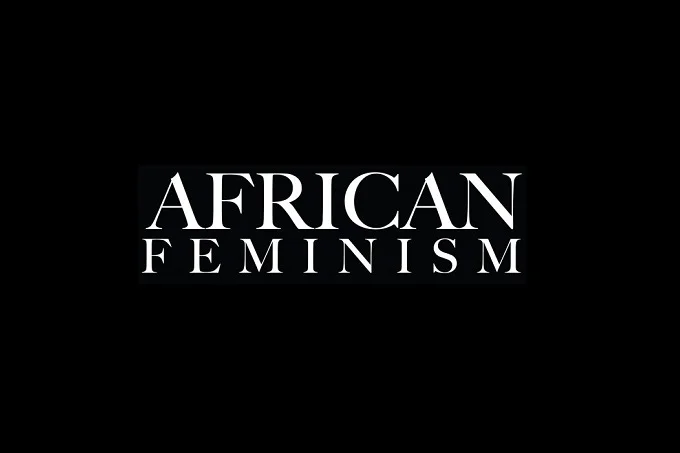What is African feminism actually?

The notion that all women throughout the globe are fighting for the same thing: liberation from males is characteristic of Western feminist thinking. African feminist thought arises from the intersection of three forms of oppression: gender, class and race.
A notion of universality and homogeneity has been challenged, particularly during the 1990s, by the rise of feminist movements in developing nations ranging from Africa to Asia, Latin America to the Middle East. They emphasize the need to recognize the distinctions between women. In reality, women’s wants and expectations are deeply influenced by their place of birth, culture, religion, race, and history.
A brief history of feminism in Africa
The confluence of three kinds of oppression: gender, class, and race, gives birth to African feminist philosophy. Their roots may be traced back to the colonial era, which introduced racial ideas, economic exploitation, and new social structures.
According to Gwendolyn Mikell, in the African setting, the introduction by Europeans of a previously unknown to local culture family type, the patriarchal one, has produced new kinds of inequality for African women.
In reality, even though many African cultures had established the concept of a patrilineal family, women maintained positions of prestige on an economic, social, and political level, on an equal footing with males, and it was thought that the two sexes complement one other. The arrival of the colonists, on the other hand, propagated the notion that only the male was allowed to deal with the Europeans, putting the woman in a position of servitude.
According to Amina Mama, one of Africa’s finest philosophers, feminism in Africa “signals the rejection of oppression and a determination to struggle for the liberation of women from all kinds of oppression – internal, external, psychological, emotional, socioeconomic, political, and philosophy.”
Therefore, combining the social structures established by colonialism is one of the goals of the African feminist movement. Omolara Ogundipe-Leslie, who coined the term Stiwanism (Social Transformation Including Women in Africa), contends that African women must resist institutions that put males at the head of society.
It is not just a fight for women’s economic and political liberation but also an intellectual change. In reality, it is essential to dismantle a Western idea, the patriarchal system, which, despite differences with the original African culture, is now considered normal by many African women.
African feminism fights against racial and economic inequality in addition to gender liberation. By using the term African Womanism, African feminists proudly assert their African cultural identity while criticizing the Western feminist movement for ignoring the experience of racial and economic oppression as a consequence of colonialism and capitalism.
It is an experience shared by African women
Characteristics of African feminism
However, there is no such thing as an African feminist movement. In reality, regional particularism, ethnicity, politics, and religion all have an impact on how women deal with gender discrimination, race, and class in different settings. “African feminism aims to build a new, liberated, creative, and self-sufficient African woman within Africa’s diverse traditions,” says Naomi Nkealah.
North Africa, for example, is the birthplace of Islamic feminism, which challenges patriarchal interpretations of the Koran and emphasizes the egalitarian message of Islamic holy texts. This hypothesis also had an impact on the Sahel region and the Horn of Africa. Some of the Islamic feminists’ major arguments include the equality of men and women in the family, the right of women to lead prayer, and the lack of separate places for men and women in the mosque.
One of the most difficult problems for feminists in the Horn of Africa and West Africa is the fight against genital mutilation. On the other hand, Women in Nigeria was founded, an organization that has both a class and a gender consciousness, acknowledging women’s discrimination in these two sectors. Finally, in South Africa, many feminists pursue political involvement to get support for legislation that safeguards women’s rights.
Despite the disparities across African settings, one hundred and twenty women from sixteen African nations met in Accra, Ghana, in 2006 to form the African Feminist Forum (AFF). It was a one-of-a-kind gathering since it was the first time many activists met to discuss the next steps of African feminist movements freely. Indeed, via the Forum, a group made up exclusively of women had the chance to address problems concerning women’s civil rights, their position in society, the economy, and politics.
The major outcome of the Forum was the creation and acceptance of the African Feminists Charter of Principles. Prior to the Forum, there were limited and fragmented chances for women to exchange thoughts and experiences on African feminist movements, which were often put on the meeting agendas of international organizations such as the United Nations and the African Union.
Since 2006, the African Feminist Forum has been organized on numerous occasions. The second AFF was held in Uganda in 2008, followed by the third in Senegal two years later and the fourth in Zimbabwe in 2016. In parallel, during the last fifteen years, a succession of smaller Feminist Forums have emerged, each involving just one or a few nations on the continent. It was feasible to bring problems and issues pertinent to the particular local settings involved to the forefront of the debate in this manner.
The AFF is designed to be creative and interactive. A number of major problems, including family, well-being, community, economics, environment, and institutions, are identified by the Forum’s organizing committee, which includes some activists, and are addressed both in plenary sessions and workshops. There are shows, creative activities, discussion tables, and manual activity classes where participants may share their skills, competencies, and experiences. At the conclusion of the Forums, reports are prepared to highlight the issues raised during the sessions, and everything is made available on the internet.
The most significant significance of all of this is the institutionalization of the African feminist movement, which will no longer be informal and dispersed but will have its own centralized manifestation.
African Feminists’ Principles Charter
The Charter is without a doubt the most significant outcome of the inaugural Forum in 2006. It continues to serve as an ethical framework into which feminist ideas are placed and a practical instrument for defining, assessing, and conforming individual and institutional commitment to the feminist movement.
The movement’s intended improvements and the methods to accomplish them are described below. The Charter has many goals, including putting an end to the patriarchal culture that defines most African settings, emphasizing the responsibility to defend and respect the rights of all women, and remembering and protecting the heritage of feminist women in the past.
Furthermore, the Charter recognizes the variety of women from throughout the continent and establishes a set of individual and institutional standards to be followed. Indeed, the Charter provides women with the security to express themselves and justify their choices on both a personal and institutional level, asserting complete freedom of expression in all areas of private and social life. To accomplish these goals, the Forum advised members to spread the Charter’s ideas as far as possible by translating them into many languages and discussing them with the major media.




